- Home
- Tony Parsons
Valley of the White Gold Page 4
Valley of the White Gold Read online
Page 4
There were some positives to the marriage that Bella did appreciate, like when she and Wally went mustering together and when they sat and talked and Wally told her what he knew of the Osborne family history and castle in England.
Bella had brought her three horses and Ginger with her from Mattai. She hadn’t brought a dog because Wally had his own. This was, however, another cause of distress in their marriage because Wally seemed rather hard on his dogs. They were all frightened of him because if they made a blue they could expect a belting. Bella hated to see animals treated this way, but when she protested, she copped an earful. ‘Dogs have to be kept in their place,’ Wally said.
‘Jim and Beth don’t belt their dogs and they both work in trials,’ Bella protested.
‘But do they do any good?’ Wally asked belligerently.
‘They do all right. Beth won a local trial when she was only fourteen.’
‘Hah! A local trial’s nothing. If you want to win a big trial, you need to have your dogs under top control. You let a dog get away with something here and he’ll put it over you on the trial ground. I’ll bet you don’t let your horses put it over you,’ Wally argued.
‘You don’t need to belt horses to get them going well. Charlie Dillon says if you have to belt dogs, either you’re a bad handler or you’ve got the wrong kind of dogs,’ Bella said.
Charlie owned a property at the extreme end of the valley, where the hills were steepest and the ground hardest. Despite the harsh conditions, he managed to produce some of the finest quality wool in the district, though he couldn’t equal Mattai and other properties in terms of quantity. He also had a special way with dogs.
‘What would Charlie Dillon know? He’s just an ignorant old man, with the worst property in the Half Moon. Has he ever won a trial?’
‘He’s won a few but he knows a lot about sheepdogs. He showed Jim and Beth how to train their dogs.’
Bella’s disillusionment increased as the months went by. She realised she had made a big mistake marrying Wally. But she was a proud woman and reluctant to admit to anyone, even Beth, that she was very unhappy.
Chapter Five
The Stafford property was situated about halfway along the valley of the Half Moon. The valley road, which ran past the front gate of Mattai, roughly followed the creek. As a rule of thumb, the further along the valley you drove the lighter – or harder – the country became. This meant that it wasn’t as good for breeding sheep but was capable of producing gloriously fine wool, free of seed and burr, and with very little tip.
The men and women of the valley were not easy people to understand. Some were as flinty as the paddocks that grazed their sheep. They took knowing. You would not get to know them in half an hour and perhaps not in half a lifetime. There were those in Mudgee who would tell you that some of the Half Moon people were very odd indeed. A local police officer once remarked that the whole valley of the Half Moon should be contained within a giant electric fence to prevent the inhabitants from travelling further afield and giving the district a peculiar name. The policeman’s colleague replied that this would be unnecessary – most of the valley people never travelled further than the Mudgee ram sales anyway.
Mattai wasn’t the largest property in the valley, but it was one of the largest. From the lower paddocks adjacent to the creek, which was where Dan Stafford ran his Herefords, his young rams and some of his stud ewes, there were perhaps two thousand acres of undulating country, which, at the extreme end of the property, gave way to some fairly steep hills. It was here that Dan ran his superfine wethers.
The Mattai homestead was about three quarters of a mile from the valley road. To reach it, you passed a thick belt of pine trees that served as both a windbreak and a shelter for freshly shorn sheep and lambing ewes. The homestead was timber with an iron roof and there was a wide verandah on the eastern side. It was enclosed by a six-foot fence that kept poultry from desecrating Dorothy Stafford’s garden, which she had laboured to establish from a wilderness of old roses and weeds. Two tracks led away from the homestead: one to the ram and show-sheep sheds, and the other to the shearing shed and shearers’ quarters. Mattai was a five-stand shed but Dan employed only four shearers because he liked to give his classer and shedhands plenty of time to handle his clip. Shearing time was the most important time of the year because the price you obtained for your wool helped to sell your rams. A top price did a lot for your ego too.
The house was capacious and comfortable. The rooms were large, and like most rural homesteads, the lounge room was the most inviting. It was furnished with a long, dark-brown leather sofa, two matching lounge chairs on either side of the fireplace, and a circular table in dark wood. A heavy sideboard displayed a number of nicely framed family photographs and some china. And in one corner, a glass-fronted cabinet was packed with silver trophies and other prizes of a successful stud breeder. Upon entering the room, everyone’s attention was immediately caught by a large photo in a silver frame. It was of a remarkable, ribbon-bedecked merino ram.
A fire burned brightly in the lounge on this particular evening. Beside it, two men sat reading newspapers. Anyone would have guessed they were father and son. Dan put down his paper and looked across at Jim.
‘Well, who are we going to get to class the wool this year? We can’t put it off any longer. Now that Les has gone, we have to settle on a top man.’ Old Les had classed Dan’s clip for donkey’s years and had recently died after a heart attack. The prospect of having to replace so expert a wool man was not something Dan was looking forward to. He didn’t wait to hear his son’s response but proceeded to answer his own question. ‘I talked with F & G and they gave me the names of some classers who handle top spinners’ clips. They recommend a fellow by the name of Rod Cameron. They say he’s a genius with fine wool. Cameron used to be foreman classer at a Sydney wool store specialising in reclassing spinners’ wool. And then one year he held the world record for both merino and comeback clips with Yass wool. F & G reckon Cameron knows fine wool probably better than anyone else in the country. I wonder how he’s placed.’
Although Jim had topped his woolclassing course, Dan didn’t consider his son yet had the experience in superfine wool to class their wool. Some young men would have been disappointed, even devastated, with this decision, so it said much for Jim’s character that he accepted his father’s decision quite matter-of-factly. He realised he wasn’t experienced enough to handle a clip the size and quality of Mattai, and if he made a mess of it, he would never live it down. A top wool price mattered a hell of a lot because it helped Dan to sell his rams. Jim reckoned that after he’d classed a few smaller superfine clips he’d be ready to class their own. That was maybe two or three years away. Jim knew how much work was involved too, and, if the job fell to him, he would have to work weekends. That would mean missing cricket. Mattai meant a lot to him but cricket was one of his only diversions. He didn’t want to give up three or four weekends yet.
Jim agreed with his dad that they needed a top woolclasser, a person who thoroughly understood superfine wool and was prepared to put in the extra effort that would ensure there were special top lines capable of taking the market by storm. He considered his father’s words. ‘We want the best man we can get,’ he said at last. ‘It means a hell of a lot to top the market. A man like Cameron would definitely make a lot of difference, Dad.’
‘I agree, but if this Cameron is as good as he’s meant to be, he’ll probably be booked up,’ Dan said slightly dejectedly.
‘Cameron should want to come to us,’ was Jim’s immediate response. ‘Everyone in the wool business knows our clip. A classer would have to be mad not to want to come here, no matter how busy.’
‘We aren’t on our own. There are other good clips. And this fellow, Cameron, has classed some of them. There’s Trevor Picker down at Bigga and he’s always hard to top. Still, I’ve got Cameron’s number. Shall I try him?’ Dan asked, with uncharacteristic uncertainty.
�
��You won’t know how he’s placed if you don’t,’ Jim replied with a grin.
Dan went into his office and closed the door. While he was on the phone, Dorothy and Beth came into the lounge room. It was a coolish night and both women were dressed in slacks and pullovers. Dorothy was rubbing cream into her hands after a tough day out in the garden.
‘What’s Dad doing?’ Beth asked. As she tossed her head, her dark hair gleamed below the room’s cosy lighting.
‘He went to see if he could get hold of the fellow we want to do our classing. A bloke by the name of Rod Cameron. They reckon he’s even better than old Les,’ Jim said.
‘Poor old Les. He must have classed for us since you kids were babies,’ Dorothy said.
‘Dad must be having a debate with this Rod Cameron,’ Beth suggested. ‘He isn’t one for long phone calls. He says they cost too much.’
At last the office door was flung back and Dan appeared, a frown upon his face. ‘Cameron won’t come unless we pay him extra money. He says you have to work at weekends and after cut-out to do a real top job on super wool. He won’t do that unless he gets paid for it. He’s only doing an odd shed now and again and says he has other things on his plate these days. Bloody hell!’ Dan scowled.
Dorothy shook her head. She hated anyone swearing in the house.
‘Did you remind him how good our wool is and that it would help his reputation to class here?’ Jim asked.
‘It made no difference. Cameron said he knows our clip. He’s seen it on the show floor. He’s had more offers to class spinners’ clips than he can poke a stick at,’ Dan said, looking grim. He didn’t like being dictated to – if there was any dictating to be done, he wanted to be the one doing it.
‘I suppose if you want the best, you’ve got to be prepared to pay for it – or him,’ Beth suggested. ‘He does have a point. There is a lot of extra work in a superfine clip. If it’s just an ordinary clip, the classer walks out of the shed with everyone else.’
‘Old Les used to work a bit extra and we always gave him a bonus after the clip was sold,’ Jim said.
‘Cameron wants it upfront. Jeez, I don’t know. I don’t like being stood over,’ Dan said, his irritation plain for all to see.
‘You’re not actually being stood over, Dad. This man, Cameron, is simply stating his terms. You don’t have to accept them. There are other classers. If it comes to that, I don’t see why Jim can’t do it,’ Beth said.
Dan glowered at her because, as usual, Beth put the matter into perspective, and he didn’t want to revisit the discussion they had already had about Jim classing the clip. He’d had so much trouble with shearers over the years that he also shied away from employing anyone he didn’t know.
‘I agree with Beth,’ Dorothy said. ‘You can’t expect a man to work all his weekends for nothing. Would you, in his circumstances?’
‘Weekends don’t mean a thing to me,’ Dan said with some heat. ‘I work when there’s work to be done. There’s no such thing as a weekend on a property.’
‘Well, if you don’t like this fellow’s terms, get someone else. No doubt there are plenty of classers who would jump at the chance to class here,’ said Dorothy.
And there’d be some who wouldn’t come here if you paid them double, Beth thought. Dan had a reputation as a hard nut and a difficult man to please. He’d grown up during the Depression years when employees had to toe the line or get sacked.
‘I say pay him the extra money,’ Jim said. ‘If Cameron is as good as they say, the bit of extra is nothing.’
‘I suppose you’re right,’ Dan conceded. ‘I just hope he’s worth it. I’d like to top Picker’s wool this year. They’ve had the wood on us lately.’
‘Our sheep are eating more feed, they’re growing more wool and we know some of it isn’t as fine as it used to be,’ Jim said. ‘We don’t get much of that hunger-fine wool we used to get when the winters were bad and feed was scarce. But the wethers’ wool is still pretty fine, Dad.’
‘Jim’s right,’ Dorothy agreed. ‘The flock is cutting a lot more wool than it used to. If it wasn’t, things would be a lot tougher. It’s a big relief not to have the bank manager breathing down our necks.’
‘I’d still like us to get some more hill country so we could run more wethers.’
Dorothy and Beth exchanged glances as father and son launched into another of their ongoing debates on the finer points of breeding quality wool. It never stops, Dorothy thought. It would be a relief if now and again they discussed something else. Dorothy had hoped that at least one of her children would go to university but that hadn’t been the case. They had all been tied to the property. ‘No sense in paying outsiders to work on the place when you’ve got family to do it. It makes more sense to pay them.’ That was Dan’s point of view. But the fact of the matter was that not one of them was actually paid a wage. They were paid an allowance that was based on the property’s income.
Dorothy noticed that Jim had, for the moment, ceased taking an interest in the discussion. He’d gone quiet and his face was furrowed in concentration. ‘What is it, Jim? Surely not lost for something more to say about wool?’ Dorothy joked.
‘You did say this classer’s name was Rod Cameron, didn’t you, Dad?’ he asked.
‘That I did,’ Dan asked.
‘It’s just that I think I’ve heard the name before, but not in relation to wool.’
‘Really? Is there something we should know about him?’
Beth asked with shining eyes. She liked shearing time best of all because Mattai really came alive for the three weeks or so of its duration. A lot of people came to inspect the noted clip, and she loved the gossip and scandal that sometimes accompanied them.
‘I suppose it would be too much of a coincidence that he could be the same Rod Cameron who played first-grade rugby for University. He was the best prospect in the game and would have played for Australia. The League blokes were after him real hard. He was a top swimmer before he played football, too. The same Rod Cameron also played first-grade cricket. He was a fast bowler,’ Jim told them as he dredged up information from his encyclopaedic memory for sporting facts and figures.
‘And what happened to that Rod Cameron?’ Beth asked.
‘I don’t know. He simply stopped playing sport. Sort of disappeared. It shocked a lot of people… sporting people. I wonder if this could be the same bloke. It wouldn’t be hard to find out,’ Jim said with a grin.
‘Why don’t we just wait and see?’ Dan said. ‘Whether he is or isn’t doesn’t really matter, does it? What concerns us is how well he can class our wool.’
While agreeing with his father, Jim hoped their new classer would be the Rod Cameron so that he could talk cricket with him and perhaps even persuade him to do a net session with the Mudgee team.
‘How old would he be?’ Beth asked, trying to sound nonchalant.
It didn’t fool Dorothy. Ha, the worm has finally turned, she thought. Beth’s looking for a man now, too. What a relief.
Jim did some counting on his fingers. ‘I reckon he’d be thirty, maybe thirty-one.’
Beth supposed he’d have to be that age to have become such a respected classer. He was probably a bit old for her, though.
‘You’d better ring him back and tell him he’s got the job, Dan,’ Dorothy said. ‘It seems he’s the best man you could get and I agree with Jim that a bit of extra money isn’t going to break us. My father used to say that second best was never good enough.’
Dan got up and walked back into the office. Minutes later he told them all, somewhat grudgingly, that Cameron had agreed to class their wool.
Beth felt a tremor of excitement. Shearing promised to be even more interesting than usual.
Chapter Six
In Australia, there are graziers and there are graziers, and then there are those who belong to the ‘squattocracy’. These are the long-established and wealthy landowners who regard themselves as the aristocracy. Their forebears ‘squatt
ed’ on huge areas of crown land, and down through the generations managed to hold on to significant portions of it. Dan was a respected woolgrower and stud breeder, but he did not belong to the squattocracy.
John Stevens did. He was sometimes referred to as ‘Young John’ because John Stevens senior was still alive and living in retirement on the Central Coast of New South Wales. Young John was not the most knowledgeable grazier in the district but, from a social point of view, his credentials were impeccable. He had been educated at The King’s School in Parramatta, married a society girl, raced thoroughbreds and was president of the local graziers’ association. Stevens also owned Cherrytree, the largest property in the district. He and his elegant wife Lara, who always dressed like a fashion plate, would be seen in all the right places, like the Sydney and Melbourne Cups, the Randwick yearling sales, the picnic races and the cattle judging at Sydney’s Royal Easter Show. Then there’d be the annual holiday in Hawaii or perhaps on some island resort off the Queensland coast.
At one stage of her life Dorothy Stafford had thought that John Stevens would make a good husband. He had lovely manners and didn’t come across with the same degree of self-importance as some of the other graziers she’d met. He was also quite handsome, and always looked neat and tidy, even when messing about with sheep.
Dan got on quite well with John Stevens, although they didn’t have a lot to do with one another. But in Dan’s eyes, Stevens had one great drawback: he wasn’t a producer of superfine wool. Many years ago, John Stevens senior had introduced Peppin blood rams to obtain a greater cut of wool. In Dan’s eyes this was unforgiveable. Peppin-strain sheep certainly cut a bit more wool than the finer-woolled sheep, but it sold for a much lower price, so what was the gain? Dan always insisted that Stevens could produce superfine wool on at least some of his country, but John wouldn’t dip his toe in the water and give it a try.

 Long Gone the Corroboree
Long Gone the Corroboree #taken
#taken The Family Way
The Family Way One For My Baby
One For My Baby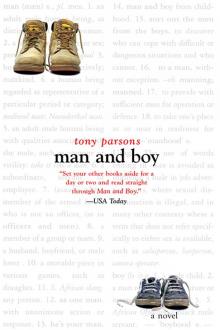 Man and Boy
Man and Boy The Murder Bag
The Murder Bag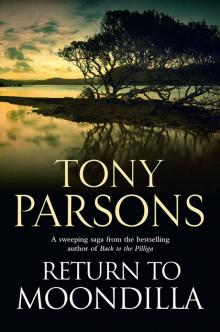 Return to Moondilla
Return to Moondilla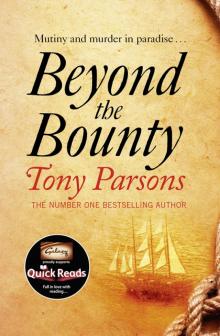 Beyond the Bounty
Beyond the Bounty Die Last
Die Last The Hanging Club (DC Max Wolfe)
The Hanging Club (DC Max Wolfe) Stories We Could Tell
Stories We Could Tell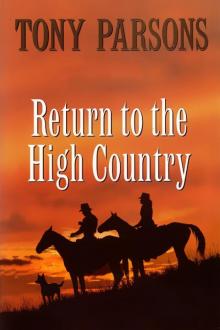 Return to the High Country
Return to the High Country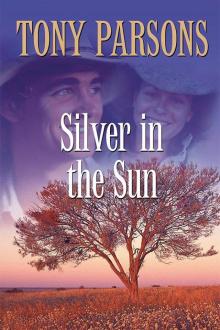 Silver in the Sun
Silver in the Sun My Favourite Wife
My Favourite Wife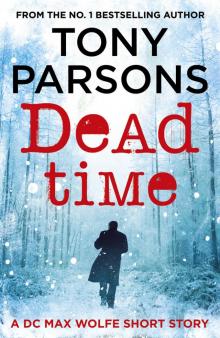 Dead Time
Dead Time Girl On Fire
Girl On Fire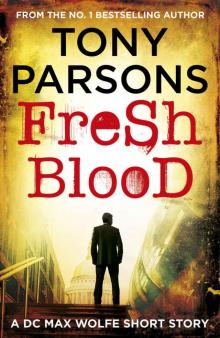 Max Wolfe 02.5 - Fresh Blood
Max Wolfe 02.5 - Fresh Blood Catching the Sun
Catching the Sun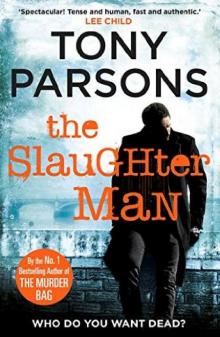 The Slaughter Man
The Slaughter Man Men from the Boys
Men from the Boys Man and Wife
Man and Wife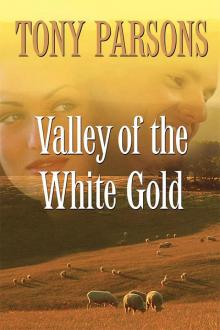 Valley of the White Gold
Valley of the White Gold Back to the Pilliga
Back to the Pilliga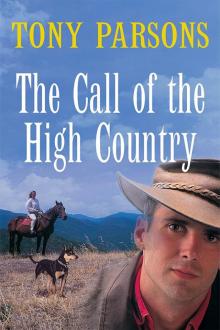 The Call of the High Country
The Call of the High Country Girl On Fire_DC Max Wolfe
Girl On Fire_DC Max Wolfe